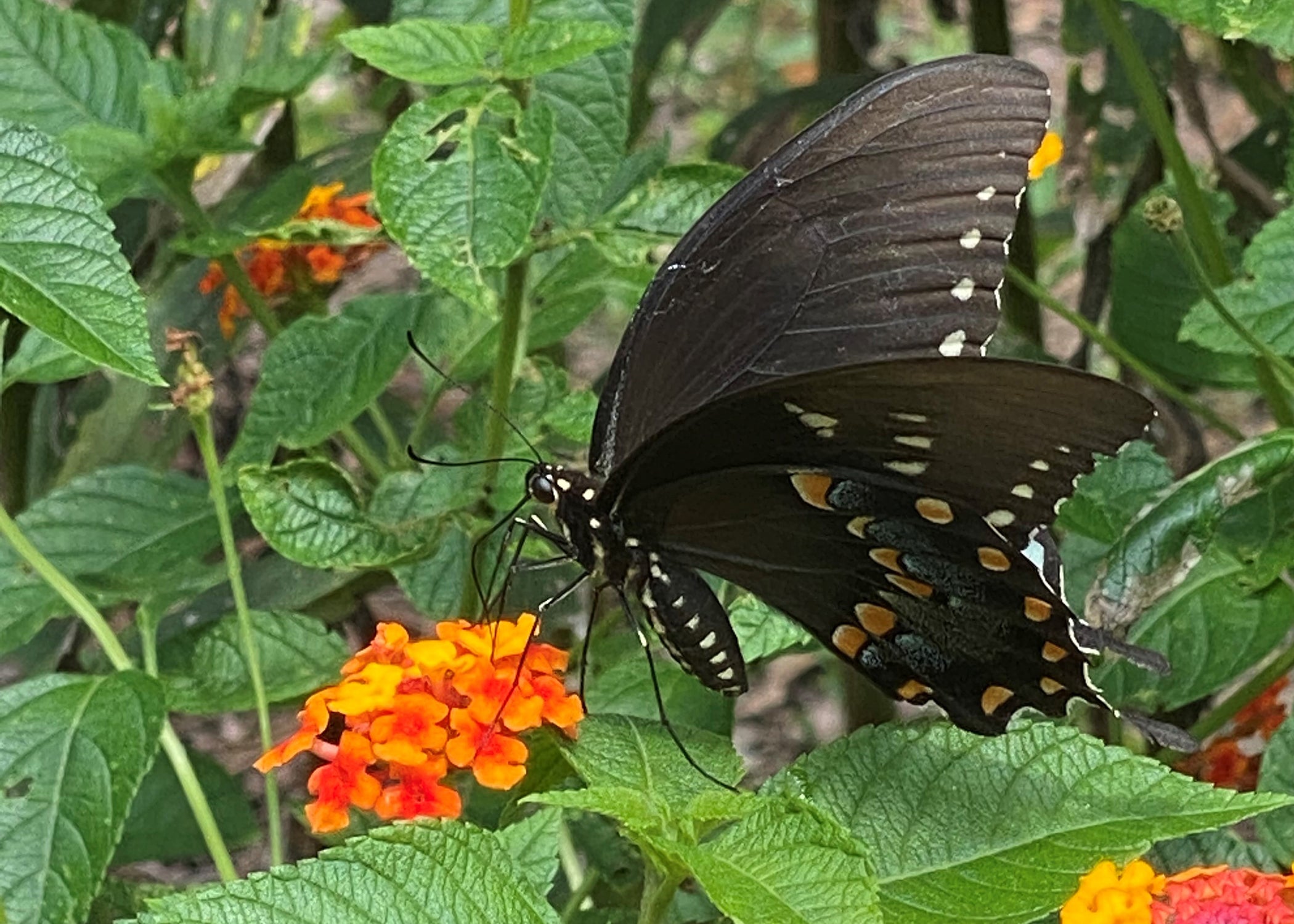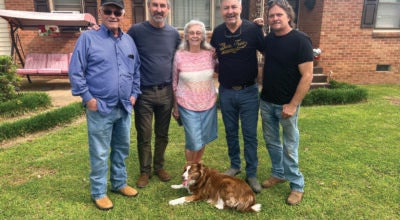Crosby Arboretum garden highlights pollinator space
Published 12:00 pm Wednesday, December 1, 2021

- BUTTERFLY -- A pollinator garden uses plants specifically chosen for their ability to host adult pollinators in various life stages. This swallowtail butterfly was drawn to a blooming lantana. (Photo by MSU Extension Service/Pat Drackett) Alt text -- A black butterfly rests on orange blooms.
By Bonnie Coblentz
MSU Extension Service
A grant from Coast Electric will allow for a renovation of the Mississippi State University Crosby Arboretum’s pollinator garden.
Pat Drackett, director of the arboretum, said the pollinator garden was established in 2001 as the Explorers’ Garden. It is a 3,000-square-foot space with a variety of native and other plants that helps teach visitors how to create havens for pollinators.
“When the raised beds of the pollinator garden were built and dedicated in 2001, they were intended to showcase flowering native plants species to arboretum visitors,” Drackett said. “This provided examples of how the plants could be used in home landscapes and gardens.”
Gary Bachman, Extension horticulturist, author and host of Southern Gardening, said a pollinator garden is a space where the plants grown are specially selected to support all the native pollinators such as bees, butterflies, moths, hummingbirds and even bats.
“Pollinators are important because they transfer pollen from flower to flower while gathering the nectar they need to complete their life cycles,” Bachman said. “This activity contributes to seed production for the next generations.”
Much human, plant and animal life depends on the work of the pollinators, which are also responsible for the production of ornamental crops.
Honeybees, the most commonly known pollinators, are an agricultural commodity often moved around the country to service food crops. But there are significantly more native pollinating insects, such as wasps and flies, that do not get as much attention but do a large part of the work.
Pollinators and the work they do for food crops and landscapes are threatened by indiscriminate insecticide use. This misuse includes violations of application instructions printed on pesticide labels.
“Insecticides used correctly and applied at the proper timing pose little threat to all of our pollinating insects,” Bachman said.
Individuals who want to create their own pollinator garden can follow the example of the one at the Crosby Arboretum. Such a garden needs to provide a variety of nectar sources and include native plants adapted to the region that flower throughout the seasons. Ornamental, nonnative plants can be included in pollinator gardens.
Drackett said that, while the pollinator garden had been updated through the years, it was due for an overhaul. Planning began in fall 2021, much of the renovation will take place over the winter, and the project is expected to be complete by July 2022.
“For two decades, these raised display beds have displayed examples of plants attractive to butterflies, bees and other pollinators to the visiting public,” Drackett said. “Plants here are also used for stock purposes, yielding cuttings and seeds propagated for plant sales.”
Since the pollinator garden was established, the beds have been continually tended by Pearl River County Master Gardeners and arboretum staff and volunteers and supported through contributions from members, Crosby Arboretum Foundation board members, and community businesses and organizations.
The gardens underwent an extensive renovation in 2015-2016 when existing beds and soil were removed, the entire site was regraded, and new raised beds were constructed.
Drackett said the grant for $7,850 will allow the garden area to become a more effective destination for exploration and learning.
“Coast Electric has a long history of community support, and the Operation Round Up program, which rounds up the bills of participating Coast Electric members to the nearest dollar, allows the cooperative and its members to work together to positively impact the quality of life in our communities,” Drackett said.
Renovations will include installing new plants and garden materials, as well as signage to identify each plant, its cultural needs and its purpose. Signage also announces the garden’s certification for providing pollinator and wildlife habitat and identifies it as a Monarch Waystation, a certification the Pearl River County Master Gardeners received in 2017.
“The grant will also allow us to install new plants and garden materials, purchase maintenance tools and supplies, build arbor structures, and make improvements to the watering system,” Drackett said.
A second aspect of the grant is a series of educational programs delivered by Crosby Arboretum on topics such as providing the basic needs of pollinators, types of pollinators and the plants they need, and creating healthy home, school and community gardens.
“Pollinator gardening programs will inform participants about the various organizations that have certification programs for gardens providing pollinator and wildlife habitat,” Drackett said.
Garden information also will be available in an educational kiosk.
“The goal is to inspire garden visitors to create home pollinator habitats and to carry what they learn into the surrounding neighborhood and local community,” she said. “Future visitors to the Arboretum’s renovated Pollinator Garden will be able to take home useful plant information by simply snapping a photograph of the signs.”
The Crosby Arboretum in Picayune was established in 1980 as a living memorial to timber pioneer and philanthropist L.O. Crosby Jr. It is part of the MSU Coastal Research and Extension Center and provides protection to the native plant species of the Pearl River Drainage Basin of south-central Mississippi and Louisiana.
Visitors can view plants in their natural setting as they walk through the 104-acre native plant center. The arboretum also manages more than 700 acres in seven associated natural areas that protect more than 300 species of indigenous trees, shrubs, wildflowers and grasses.
Visit the Crosby Arboretum at 370 Ridge Road in Picayune just off Interstate 59.
This project is supported by the members of Coast Electric through Operation Round Up and their community trust, in partnership with the Gulf Coast Community Foundation.





